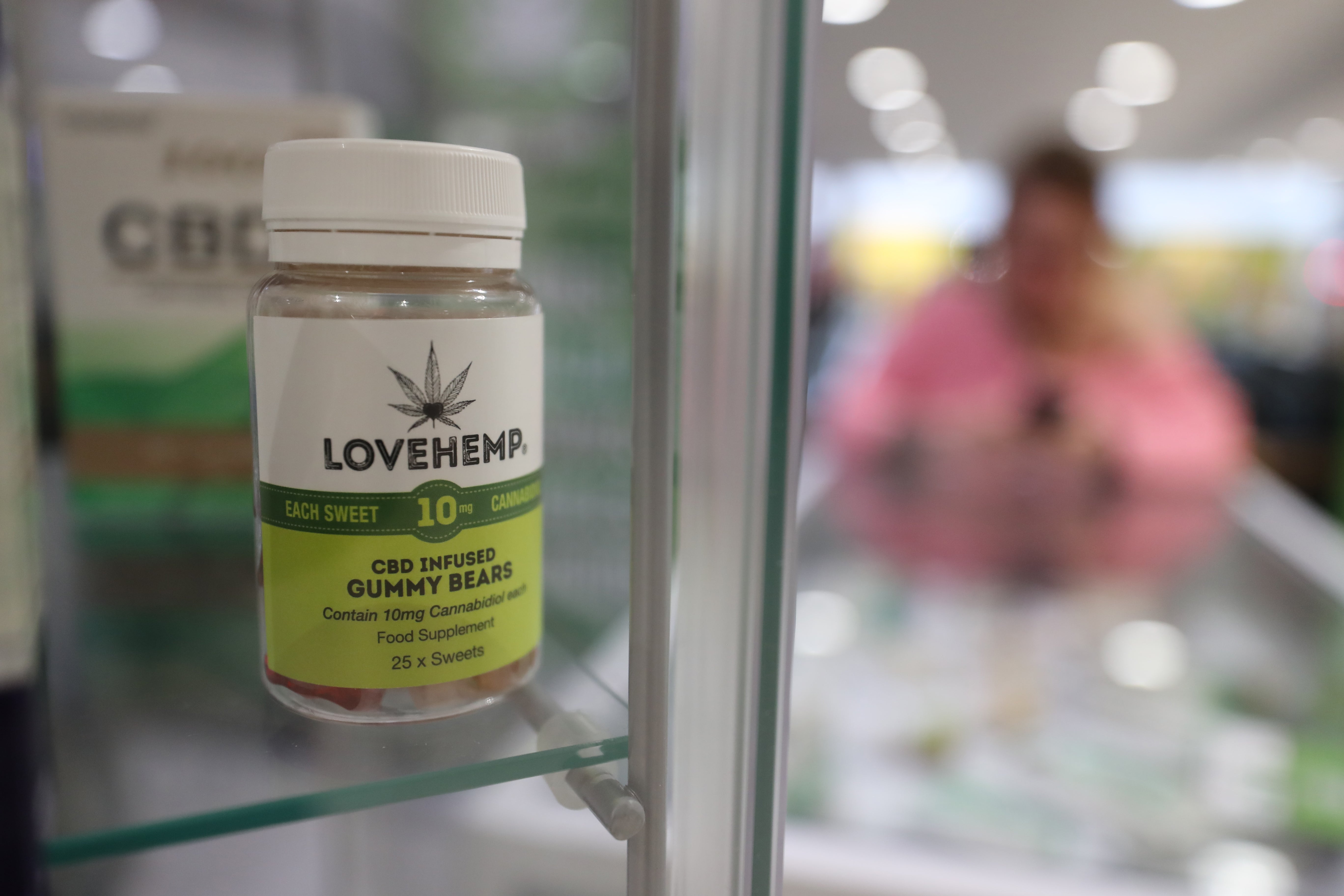Food safety watchdog takes next step in regulating CBD market
No food products containing CBD – found within hemp and cannabis – have yet been authorised for sale in the UK, despite them being widely available.

Your support helps us to tell the story
From reproductive rights to climate change to Big Tech, The Independent is on the ground when the story is developing. Whether it's investigating the financials of Elon Musk's pro-Trump PAC or producing our latest documentary, 'The A Word', which shines a light on the American women fighting for reproductive rights, we know how important it is to parse out the facts from the messaging.
At such a critical moment in US history, we need reporters on the ground. Your donation allows us to keep sending journalists to speak to both sides of the story.
The Independent is trusted by Americans across the entire political spectrum. And unlike many other quality news outlets, we choose not to lock Americans out of our reporting and analysis with paywalls. We believe quality journalism should be available to everyone, paid for by those who can afford it.
Your support makes all the difference.The UK’s food safety watchdog has published a first list of CBD (cannabidiol) products it is working on authorising for sale in the UK.
To date, no food products containing CBD – found within hemp and cannabis – have been authorised for sale in the UK.
CBD products are “novel”, meaning they do not have a history of consumption before May 1997, and therefore need to be assessed by the Food Standards Agency (FSA) for safety before being sold on the market here.
However CBD extracts are widely available in UK shops, cafes and online in the form of oils, drops, gels, confectionery, bakery products and drinks.
The FSA said the list was the next step in regulating the market.
We have created the public list to help local authorities and retailers prioritise products to be removed from sale
Despite the move, FSA chief executive Emily Miles said the FSA “does remain concerned about CBD” because of a lack of studies about it when consumed as a food, adding: “While we haven’t yet been shown enough evidence to say that CBD is unsafe, nor is there enough evidence to show that it is safe.”
The FSA continues to advise that consumers “think carefully” before taking CBD products, and recommends people in vulnerable groups, including pregnant and breastfeeding women and those taking medication, do not use it unless under medical direction.
Some scientific studies suggested CBD could affect the liver if taken at higher doses, although there had been very few studies, the FSA said.
As a precaution, it recommends that healthy adults do not take more than 70mg a day, about 28 drops of 5% CBD, unless a doctor agreed more.
The FSA’s list shows which products have a “credible application” to be authorised by the regulator.
The FSA is now calling on local authorities and retailers to help bring the CBD market into compliance by removing from sale products that are not on the list.
FSA chief executive Emily Miles said: “The CBD market is growing rapidly. The FSA has been working to move the CBD industry into compliance. Today we have taken the next step in our pragmatic approach to making sure CBD products are safe and what they say they are.
“We have created the public list to help local authorities and retailers prioritise products to be removed from sale. If a product is not on the list, it should be removed from sale because it is not attached to a credible application to us for market authorisation.
“But being on the list means that the application is credible and the FSA has, or is shortly expecting to receive, significant scientific evidence from the applicant with which to judge safety.”
She added: “I want to emphasise that the FSA is not endorsing products on the public list, and inclusion on the list is no guarantee that they will be authorised as they have they not yet been fully assessed for safety.
“But we have taken the step of publishing the list so that local authorities, retailers and consumers can make informed judgments about what they stock and buy, as we gradually bring this growing market into compliance with the law.”